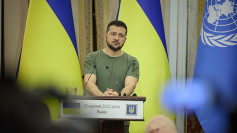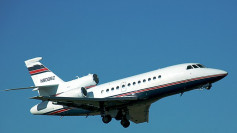Tensions between Israel and Lebanon escalated further on Sunday, as the United Nations accused Israeli forces of breaching a peacekeeping base in southern Lebanon. According to the United Nations Interim Force in Lebanon (UNIFIL), two Israeli tanks forcibly entered one of its bases before dawn, damaging the main gate and violating the international peacekeeping mandate in place. This incident adds to the growing list of alleged Israeli violations, which have sparked concern among UN officials and criticism from some of Israel's own allies.
The breach reportedly occurred just hours after Israeli Prime Minister Benjamin Netanyahu publicly urged the United Nations to withdraw its peacekeeping troops from areas where Hezbollah fighters are active. Netanyahu argued that the UN forces were providing a "human shield" for Hezbollah, the Iranian-backed militant group that has been engaged in ongoing hostilities with Israeli forces since the beginning of the latest Gaza conflict. The prime minister's call was met with resistance from UNIFIL, which stated that it would not abandon its position in southern Lebanon.
According to the UN report, the Israeli Merkava tanks remained inside the UNIFIL base for 45 minutes before leaving. Shortly after their departure, shells exploded approximately 100 meters from the base, emitting smoke that caused 15 peacekeepers to experience respiratory distress and skin irritation, despite wearing protective gas masks. It remains unclear who fired the shells or what substances may have been involved, but UN officials have requested an explanation from the Israel Defense Forces (IDF) regarding the incident. The IDF did not immediately respond to the accusations.
"Any deliberate attack on peacekeepers is a grave violation of international humanitarian law and Resolution 1701," UNIFIL said in a statement, referring to the UN Security Council resolution that established the peacekeeping mission. "We have requested an explanation from the IDF for these shocking violations," the statement added.
UNIFIL, a 10,000-strong peacekeeping force established in 1978, has been stationed in southern Lebanon to monitor the ceasefire between Israel and Hezbollah following the 2006 Lebanon war. Over the years, the region has remained highly volatile, with frequent skirmishes between Israeli forces and Hezbollah militants. The current conflict, which began over a year ago, has seen some of the heaviest fighting since the 2006 war, with more than 2,100 people reported dead in Lebanon and at least 54 killed in Israel.
The incident involving the UNIFIL base is part of a broader escalation in hostilities between Israel and Hezbollah. The militant group began firing rockets into northern Israel in support of Hamas shortly after the Gaza war erupted in October 2023. Israel, in turn, has launched a ground operation in southern Lebanon aimed at neutralizing Hezbollah, which has led to widespread destruction and displacement of civilians. Over 1.2 million Lebanese have reportedly been driven from their homes, with many fearing that the conflict could soon spiral into a broader regional war.
Hezbollah has long been accused by Israel of using civilian infrastructure, including areas near UNIFIL positions, to shield its military operations. Netanyahu's government has repeatedly criticized the UN peacekeeping force for what it sees as its inability to curb Hezbollah's influence in the region. "The time has come for you to withdraw UNIFIL from Hezbollah strongholds and from the combat zones," Netanyahu said in a statement addressed to UN Secretary-General António Guterres.
In response to Netanyahu's remarks, UNIFIL spokesperson Andrea Tenenti emphasized that the peacekeeping force remains committed to its mission. "There was a unanimous decision to stay because it's important for the UN flag to still fly high in this region, and to be able to report to the Security Council," Tenenti told AFP on Saturday.
The breach of the UNIFIL base also drew sharp criticism from several of Israel's Western allies. Italy, which has more than 1,000 troops in the UNIFIL force, denounced the attack as "unacceptable." Italian Prime Minister Giorgia Meloni, traditionally a strong supporter of Israel, expressed her concerns in a phone call with Netanyahu, according to a statement from her office. France and Spain, which both contribute nearly 700 soldiers each to the mission, also condemned the Israeli actions.
Meanwhile, U.S. Defense Secretary Lloyd Austin expressed "deep concern" about the situation during a call with Israeli Defense Minister Yoav Gallant. Austin reportedly urged Israel to ensure the safety of UN peacekeepers and the Lebanese military, which has not been directly involved in the current conflict with Hezbollah. The U.S. has also been closely monitoring potential Iranian involvement in the conflict, with reports suggesting that Israel may retaliate against Iran for its alleged support of Hezbollah.
The escalating violence in southern Lebanon, combined with increasing Israeli strikes, has placed UNIFIL peacekeepers in a precarious position. Jean-Pierre Lacroix, the UN's Under-Secretary-General for Peacekeeping Operations, recently warned that "the safety and security of peacekeepers is now increasingly in jeopardy," as operational activities have come to a halt in many areas due to the conflict. Despite these challenges, the UN has made it clear that it intends to maintain its presence in the region.






